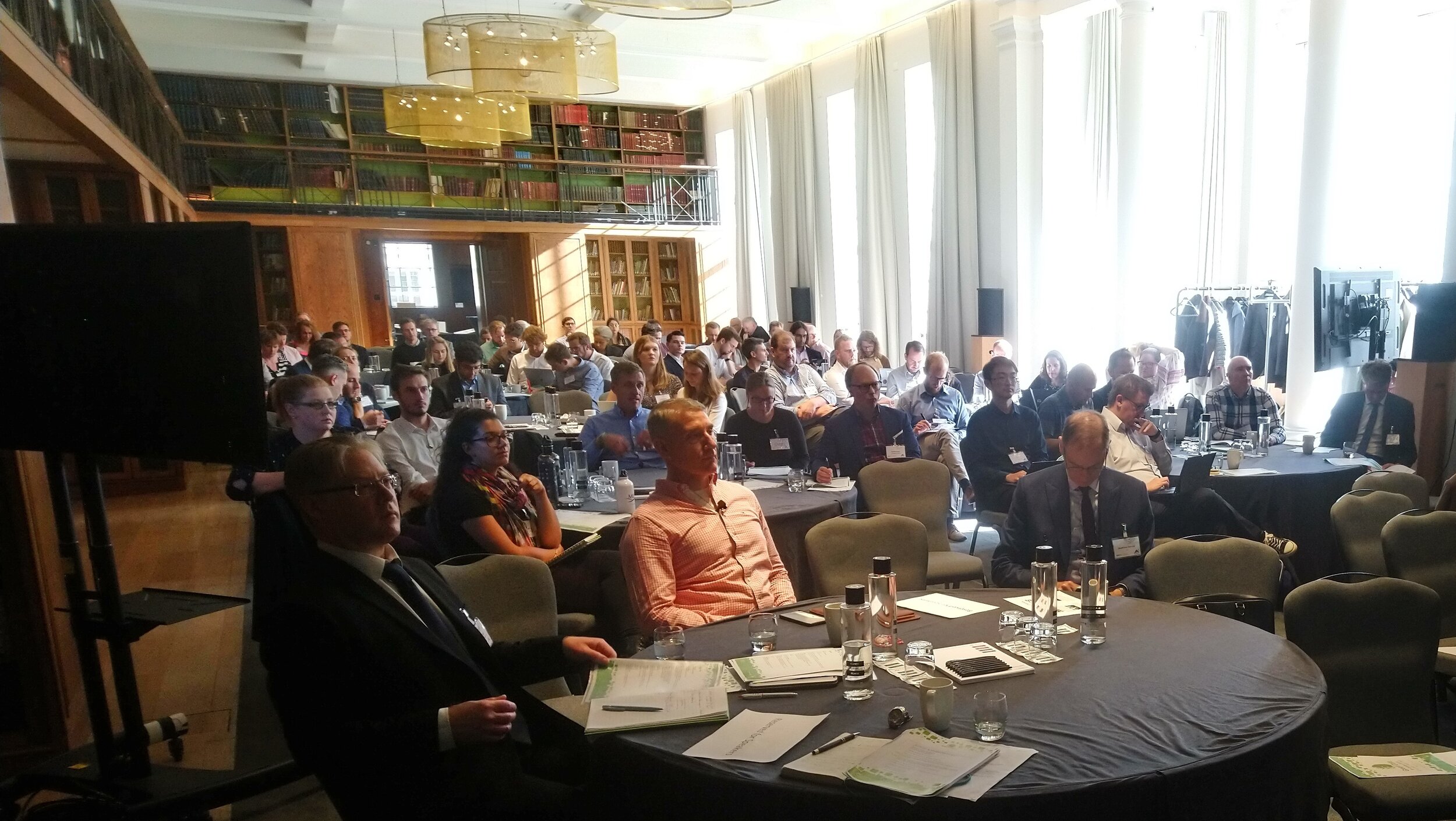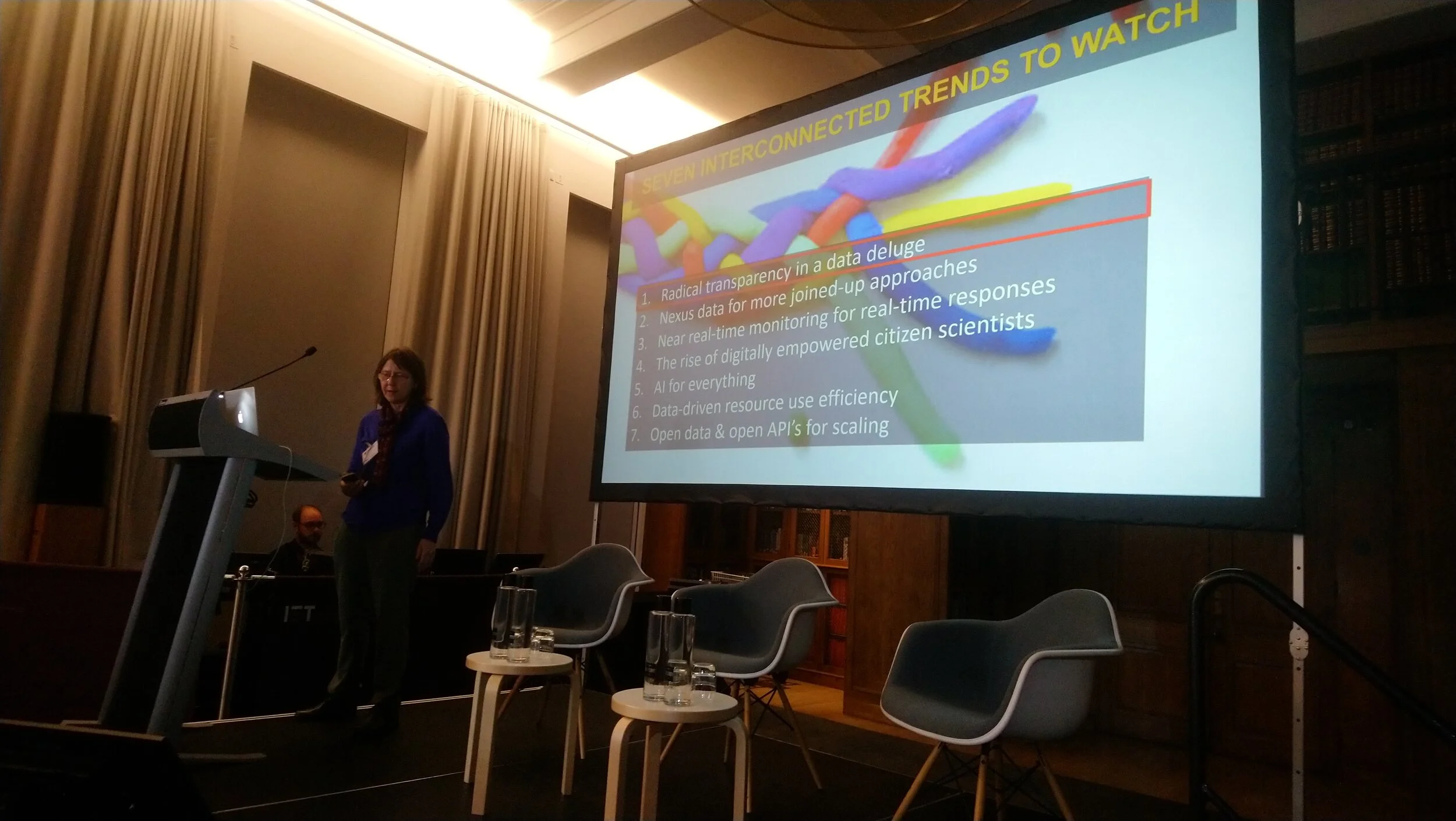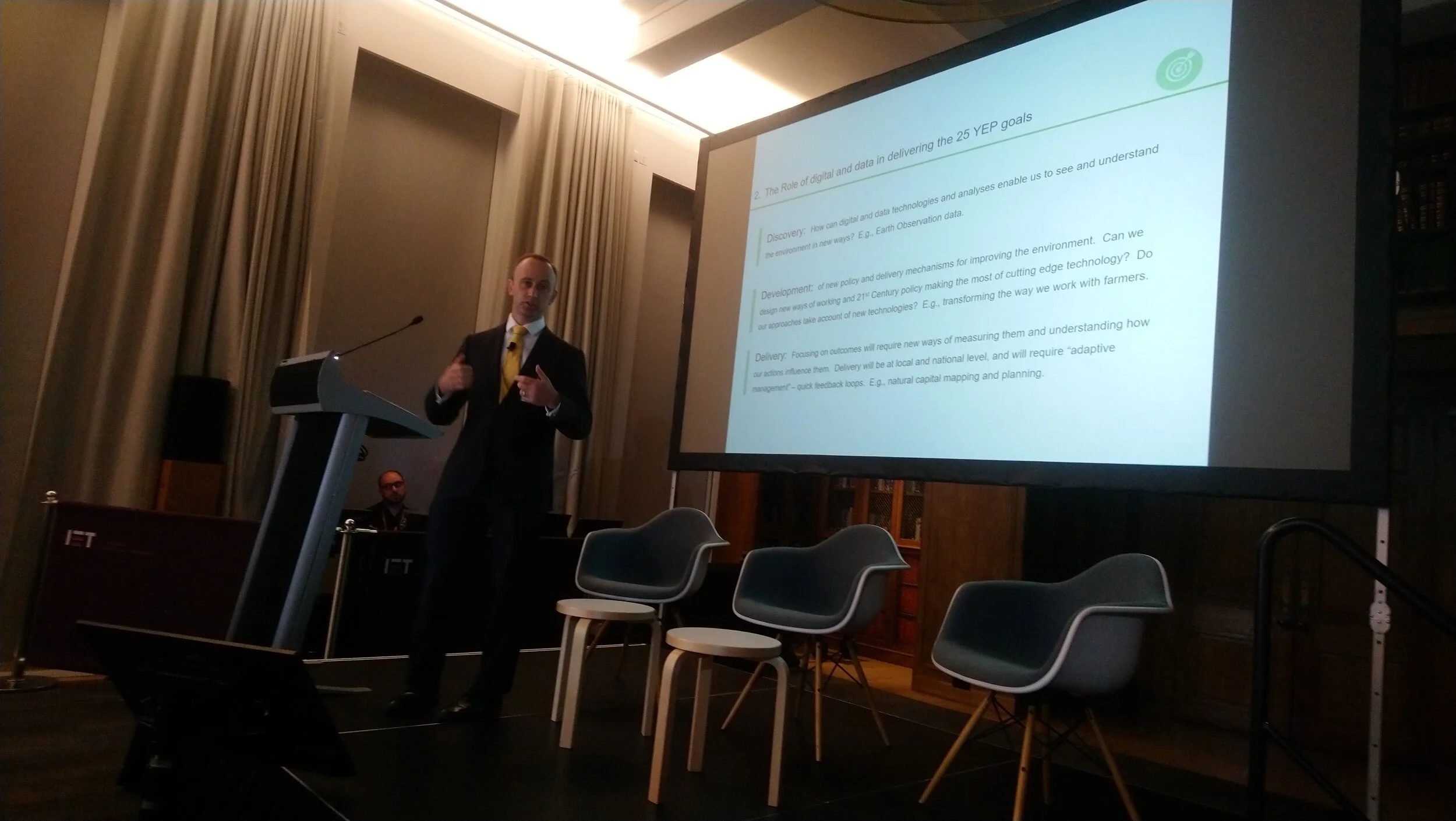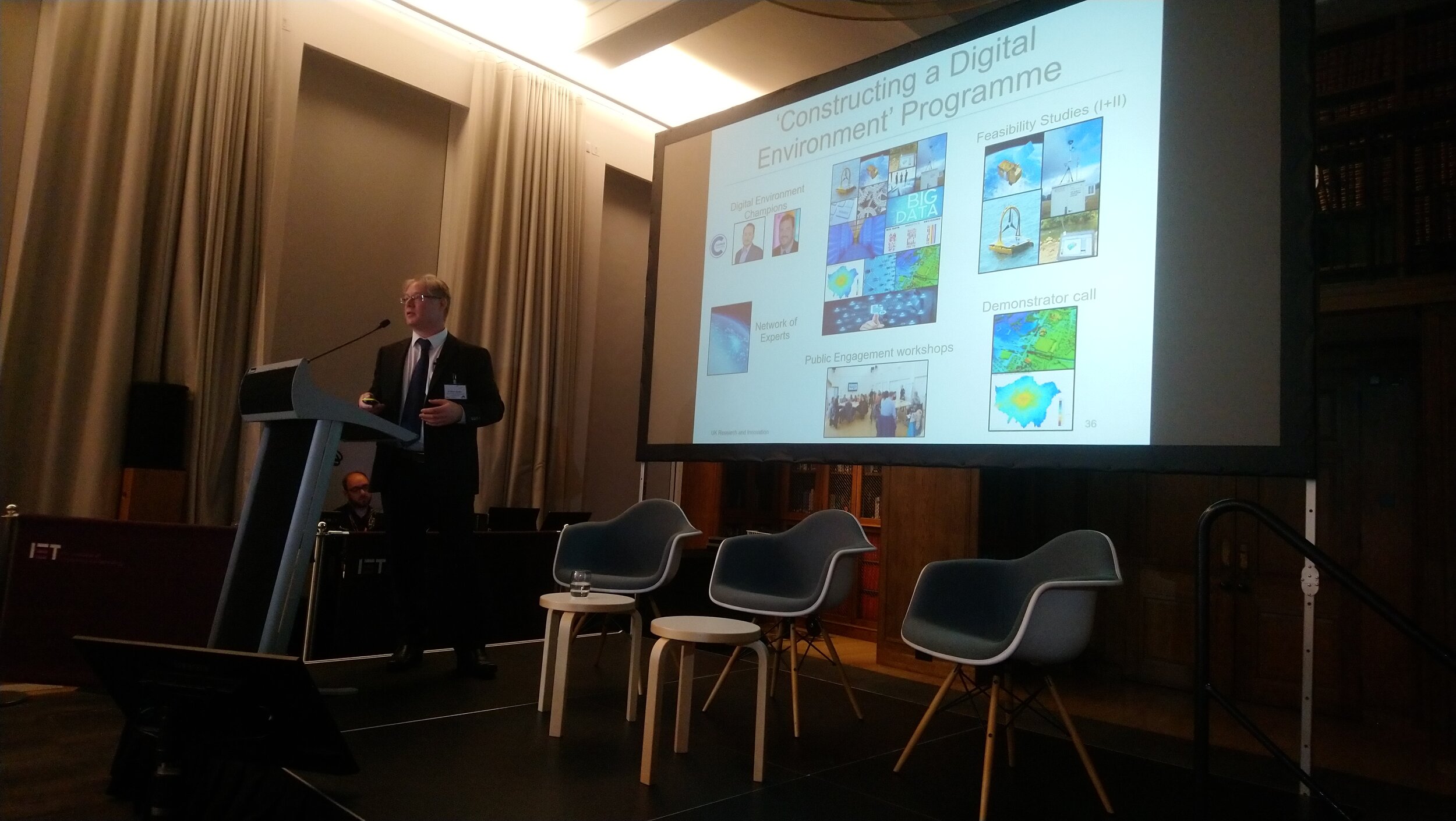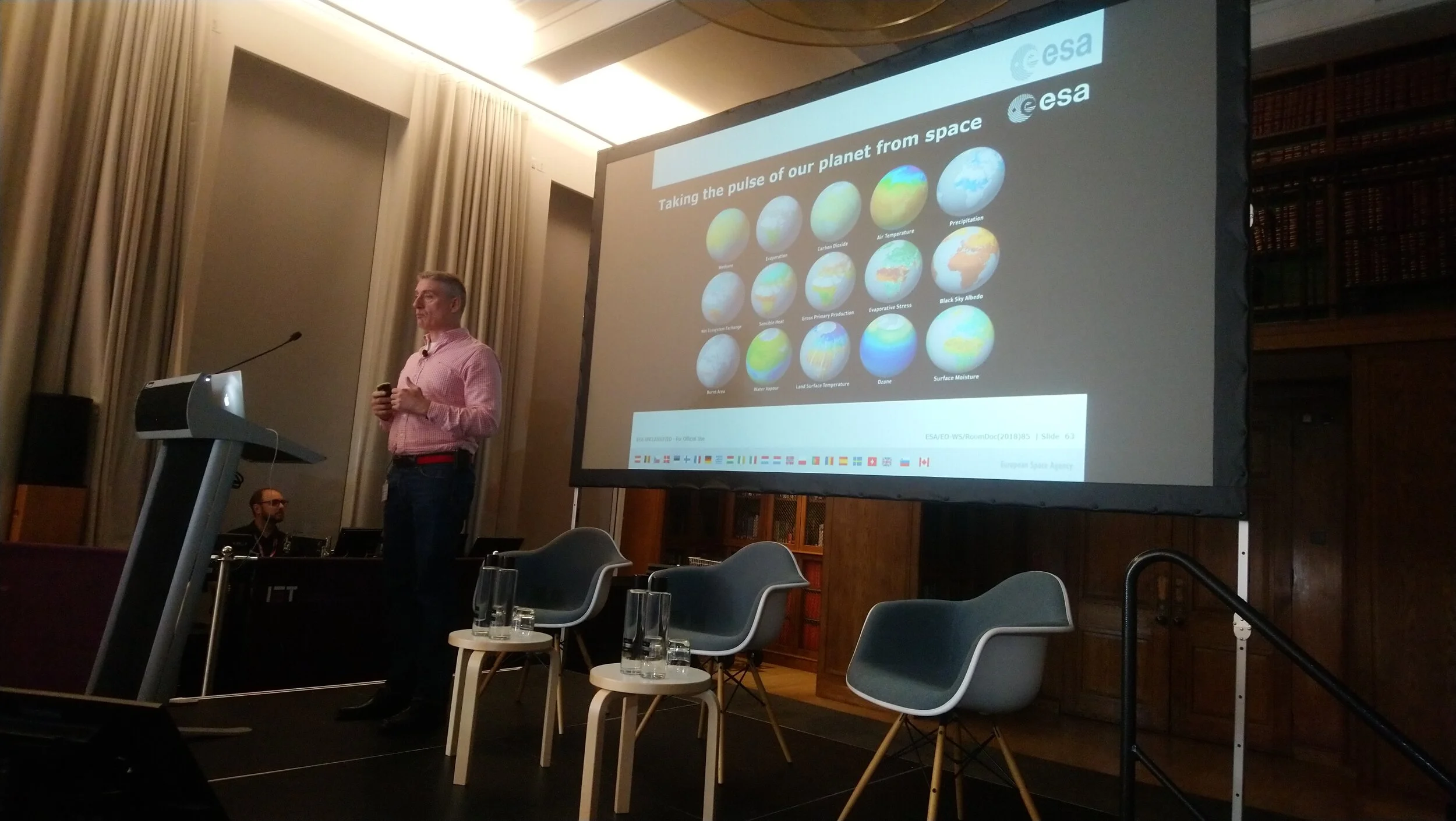The time is now to generate impact and value from green data
The Environmental Industries Commission hosted its second annual Green Data conference at the IET Savoy Place in London on 9 October. A range of trends and practical applications for green data were raised by an excellent line up of speakers including experts from Defra, the Natural Environment Research Council (NERC), the Institute for Environmental Analytics, the European Space Agency, the World Resources Institute, universities and consultancies.
Accelar’s Managing Director Chris Fry chaired the conference and set the scene for the day, reminding everyone of the motive for harnessing green data - to support a rapid transition to a clean and resilient economy and the recovery of natural systems. He noted how the strength of the current policy framework in the UK across decarbonisation, environment and infrastructure was as a facilitator and identified the means to achieve rapid change being the flow of finance to green investment coupled with the digital and automation revolution.
Chris drew further similarities between the potential impact of green data (or digitalisation) with that of green finance, citing the three pillars of the Government’s 2019 Green Finance Strategy, i.e.: greening finance; financing green; and capturing the opportunity. These pillars can equally be applied to green data/digitalisation. Greening digital has many dimensions from greener digital infrastructure (e.g. data centres) to the incorporation of environmental and climate change content to raise awareness via video games (e.g. as part of recent announcements by the Playing for the Planet Alliance). Digitalising green and capturing the many opportunities would then be the main focus for the conference.
Later, in closing the conference Chris recapped on three of the many themes raised by speakers and comments during the day:
Firstly that the time is now to make the most of earth observation and other green data, using value-adding business models to unlock environmental improvement.
Secondly that in an interconnected and collaborative world, metadata is everything so that data can be explained and relied upon by multiple users.
Thirdly, with endless data and analytical possibilities, it is essential to keep focused on purpose and people, including an awareness of how people interact with information and help to generate it as in the case of citizen science.
For more highlights and snippets from the experts and panel discussions at the conference you can check out this Twitter moment. See also the EIC’s Sustainable Smart Cities platform for further information about the green data solutions and applications in an urban environment.

